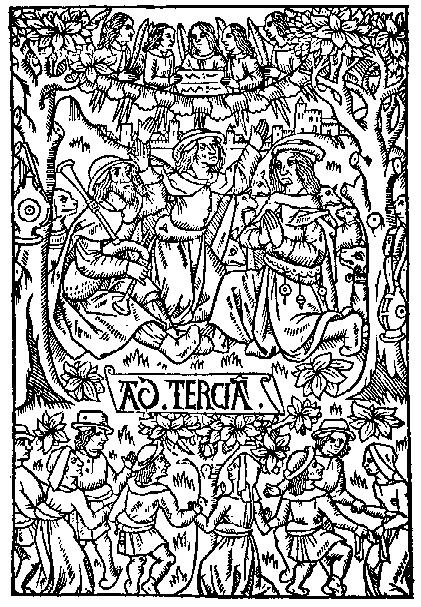Covenants
 It was not unknown before the Iron Rule for a God, or for groups of Gods, to make pacts with mortal kings, or for mortals to seek divine support in seeking rulership over a kingdom. Here's how such an arrangement might work - obviously, specific Covenants may be slightly different.
It was not unknown before the Iron Rule for a God, or for groups of Gods, to make pacts with mortal kings, or for mortals to seek divine support in seeking rulership over a kingdom. Here's how such an arrangement might work - obviously, specific Covenants may be slightly different.
The God's Side
When a God makes a Covenant with a mortal kingdom the God is lending his or her support to a particular mortal dynasty, ensuring that the dynasty's realm will survive against all threats and that the dynasty will remain in charge. In general rebellion against rulers who have made a Covenant with a God is near-impossible, unless the rebels themselves make a pact with rival Gods, or if the God who is party to the Covenant transfers his support to the rebels. Similarly, nations which lack Covenants with similarly powerful Gods backing them cannot hope to prevail in open war against nations under the protection of a God.
The God making a Covenant with a nation may also be expected to provide advice to the ruler of the nation. This does not mean that they are at the beck and call of the King in question. It does mean, however, that in moments of crisis the King will look to the God for aid.
Gods who have made Covenants are expected to, at least in public, show
support for their adopted nation and rulers (one would lose face
amongst the Gods if one were seen to be supporting a mortal one did
not approve of). Back in the day it was not uncommon for Gods who had
made Covenants with nations to turn up to the coronation ceremonies
and royal weddings of that nation, either incognito or openly, to give
gifts to their chosen rulers. It was also not inconceivable for rival
Gods to turn up to such ceremonies to inflict curses.
The Mortal's Side
The mortal dynasty making a Covenant, in general, promises to rule the
nation in the name of the God in question. The worship of said God
effectively becomes the official religion of the nation: the cult of
the God in question can expect substantially preferential treatment
compared with other cults. If the God is Jealous worshippers of other
gods may be driven out of the nation entirely. The cult of the God
will swell in proportion to the size of the nation, and will have an
excellent place to build large temples and to co-ordinate its
activites from.
The Kings of the nation will enforce the God's law on the people of
the land, and (if they know what's good for them) be ready to relay
the God's commands to the nation, and to lead the nation's armies in
any cause the God orders them to.
Ending a Covenant
Covenants are often backed up with Oaths (generally along the lines of
"I swear to adhere to the Covenant to the best of my ability", though
some have gone further), but contain certain windows of opportunity
that allow for a God to end a Covenant. For example:
- If the mortal Kings of a nation, or the general populace, break the
Covenant of their own accord then obviously it's fire and brimstone
time.
- The God could refuse to recognise the ruler's heir when their
coronation comes, thus ending the Covenant.
- If the Covenant has been established because of a specific issue of
mutual interest (EG, it's been agreed to in order to counter the
threat of a rival God's nation), the Covenant may end once the matter
is dealt with (EG, once the threatening country in question has been
torn asunder).
 It was not unknown before the Iron Rule for a God, or for groups of Gods, to make pacts with mortal kings, or for mortals to seek divine support in seeking rulership over a kingdom. Here's how such an arrangement might work - obviously, specific Covenants may be slightly different.
It was not unknown before the Iron Rule for a God, or for groups of Gods, to make pacts with mortal kings, or for mortals to seek divine support in seeking rulership over a kingdom. Here's how such an arrangement might work - obviously, specific Covenants may be slightly different.